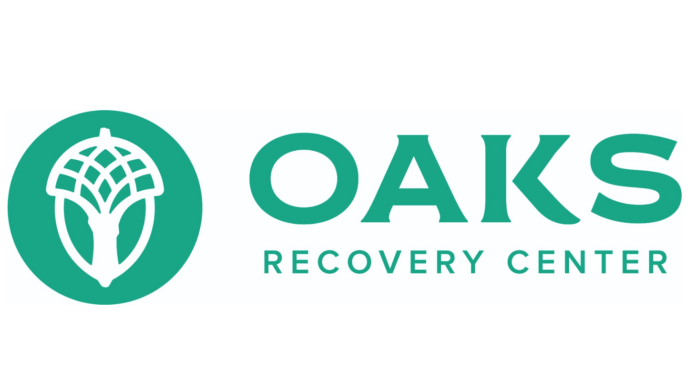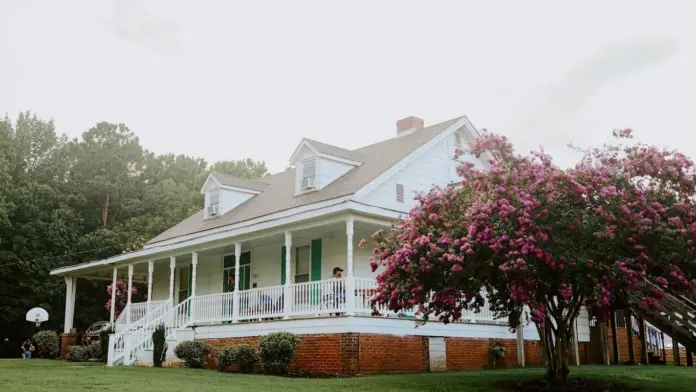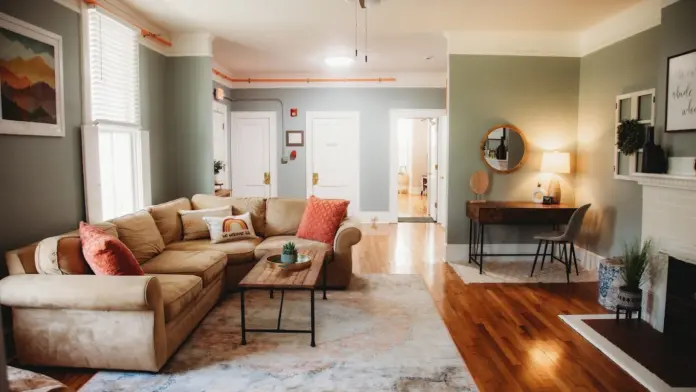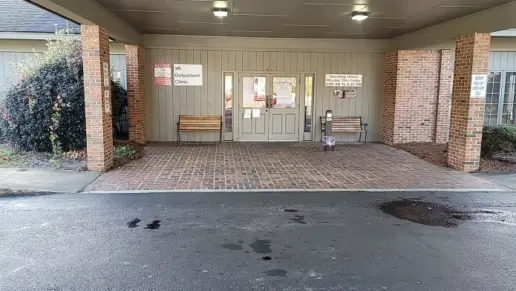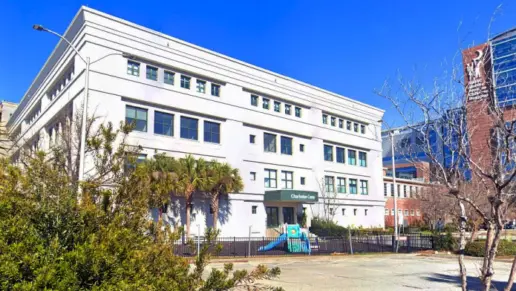My son has had many relapses, and it was always the same "I will improve here mama" that lie I have heard so many times I am unable to believe it but being here is another. His attitude changed radically, and he is sure that this time he does not want to fall back, he had ne ...
About Oaks Recovery
Oaks Recovery sits on a tranquil, rural property in Greenwood, South Carolina. Their mission is to provide affordable addiction treatment to anyone who wants help. They offer residential recovery services for adult men and women. Clients can choose either short or long term intensive recovery. They don’t offer detox or mental health care for co-occurring disorders.
The short term intensive program can last up to 42 days. Everything is centered around the 12 Step program. While some addiction treatment centers modify the program, that’s not how it works here. They use the 12 Step program exactly as it was first developed for Alcoholics Anonymous. While you’re in treatment, you’ll work all 12 Steps of the program.
The long term intensive program requires a four month commitment. It’s designed for people who may need more time to prepare for successful sober living. Staying in the program longer allows you more time to build supportive relationships with other people in recovery. If you choose the long term intensive, you’ll also get vocational assistance.
Both recovery programs provide a lot of daily structure. Days will be filled with individual recovery coaching and 12 Step workshops and meetings. Peer recovery coaches are a huge part of the recovery program. They have personal experience with addiction and recovery. Most residents feel like the guidance from their coach is priceless. Peer recovery coaches and other support staff are onsite 24/7.
Men and women work on their recovery in separate living spaces. Men stay in dorms and cottages, with up to six residents. Women enjoy a warm, spacious environment at Willow House, with rooms for up to four. There are comfortable common areas and even a basketball and volleyball court for some friendly competition!
Speaking of fun, all work and no play is not a good recipe for sobriety. Addiction often takes over and makes it hard to truly enjoy life. You can unlearn that during recovery. From creative workshops to yoga and karaoke, there’s always something fun to do!
If you can commit to spending 2-4 months in an intensive program, Oak Recovery may be a great fit!
 Payment Options
Payment Options
Self-pay options
 Levels of Care
Levels of Care
 Outpatient
Outpatient
Outpatient rehabs provide flexibility and accommodation for clients who prefer to remain in their homes and workplaces while in recovery. They also facilitate clients' sustained sobriety for clients stepping down from intensive inpatient care. Clients may engage in day, evening, night, or weekend treatment sessions, which typically involve addiction counseling and recovery-focused life skills training. Many outpatient facilities also offer medication assisted treatment (MAT) and evidence-based holistic therapies, such as yoga and massage.
 Inpatient
Inpatient
Residential treatment programs are those that offer housing and meals in addition to substance abuse treatment. Rehab facilities that offer residential treatment allow patients to focus solely on recovery, in an environment totally separate from their lives. Some rehab centers specialize in short-term residential treatment (a few days to a week or two), while others solely provide treatment on a long-term basis (several weeks to months). Some offer both, and tailor treatment to the patient's individual requirements.
 Sober Living Homes
Sober Living Homes
A sober living home in South Carolina is a substance-free environment for individuals who are recovering from drug or alcohol abuse. Since these settings do not provide treatment services, they are not covered by insurance. However, your treatment provider may be able to offer financial support if you need assistance with rent payment. They may also refer you to a men's or women's sober living home that offers sliding scale fees.
 Programs
Programs
 Adolescence program
Adolescence program
 Adult program
Adult program
 Program for men
Program for men
 Program for women
Program for women
 Elderly program
Elderly program
 Settings & Amenities
Settings & Amenities
-
Private setting
-
Basketball court
-
Private transportation
-
Recreation room
-
Meditation room
-
Gym
 Treatment
Treatment
 Alcoholism
Alcoholism
The goal of treatment for alcoholism is abstinence. Those with poor social support, poor motivation, or psychiatric disorders tend to relapse within a few years of treatment. For these people, success is measured by longer periods of abstinence, reduced use of alcohol, better health, and improved social functioning. Recovery and Maintenance are usually based on 12 step programs and AA meetings.
 Drug Addiction
Drug Addiction
Choosing a drug rehab in South Carolina helps you overcome drug dependency, learn how to manage cravings, and obtain the tools needed to prevent relapse. This is accomplished through individualized treatment that addresses a full spectrum of physical, social, and emotional needs.
 Opioid Addiction
Opioid Addiction
Opioid rehabs specialize in supporting those recovering from opioid addiction. They treat those suffering from addiction to illegal opioids like heroin, as well as prescription drugs like oxycodone. These centers typically combine both physical as well as mental and emotional support to help stop addiction. Physical support often includes medical detox and subsequent medical support (including medication), and mental support includes in-depth therapy to address the underlying causes of addiction.
 Substance Abuse
Substance Abuse
Substance rehabs focus on helping individuals recover from substance abuse, including alcohol and drug addiction (both illegal and prescription drugs). They often include the opportunity to engage in both individual as well as group therapy.
 Clinical Services
Clinical Services
 Group Therapy
Group Therapy
Group therapy is any therapeutic work that happens in a group (not one-on-one). There are a number of different group therapy modalities, including support groups, experiential therapy, psycho-education, and more. Group therapy involves treatment as well as processing interaction between group members.
 Individual Therapy
Individual Therapy
In individual therapy, a patient meets one-on-one with a trained psychologist or counselor. Therapy is a pivotal part of effective substance abuse treatment, as it often covers root causes of addiction, including challenges faced by the patient in their social, family, and work/school life.
 Life Skills
Life Skills
Life skills trainings involve all the skills a person must have in order to function successfully in the world. These include time management, career guidance, money management, and effective communication. Truly successful addiction recovery is based on the ability to not only live substance-free, but to thrive. Life skills teaches the practical necessities of functioning in society, which sets clients up for success in life, and therefore sobriety.
 Recreational Therapy
Recreational Therapy
Recreational therapy (aka therapeutic recreation) uses creative and fun activities to help with addiction recovery. Recreational therapists lead patients in entertaining and engaging activities like sports or games; art (drawing, painting, sculpture); drama, music, and dance; and/or community outings (field trips) to improve patients' physical, social, and emotional well-being.
